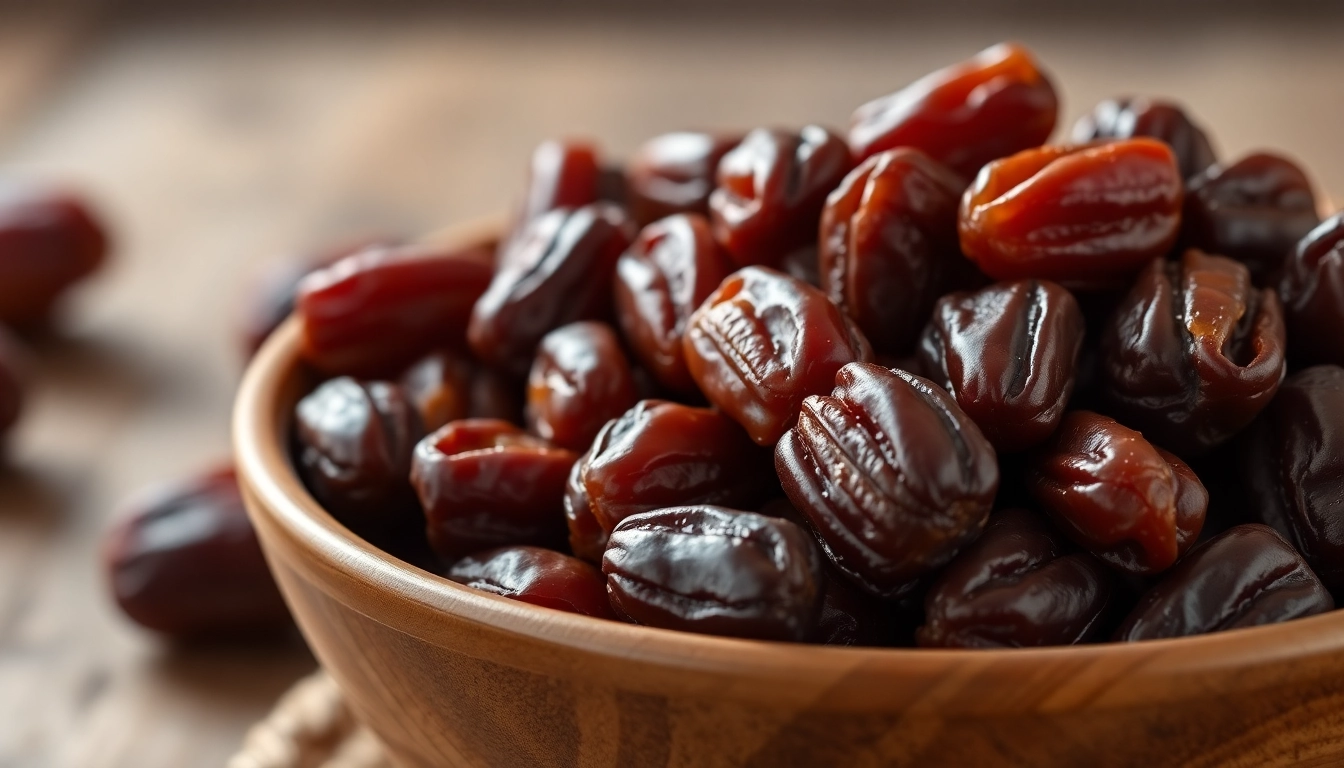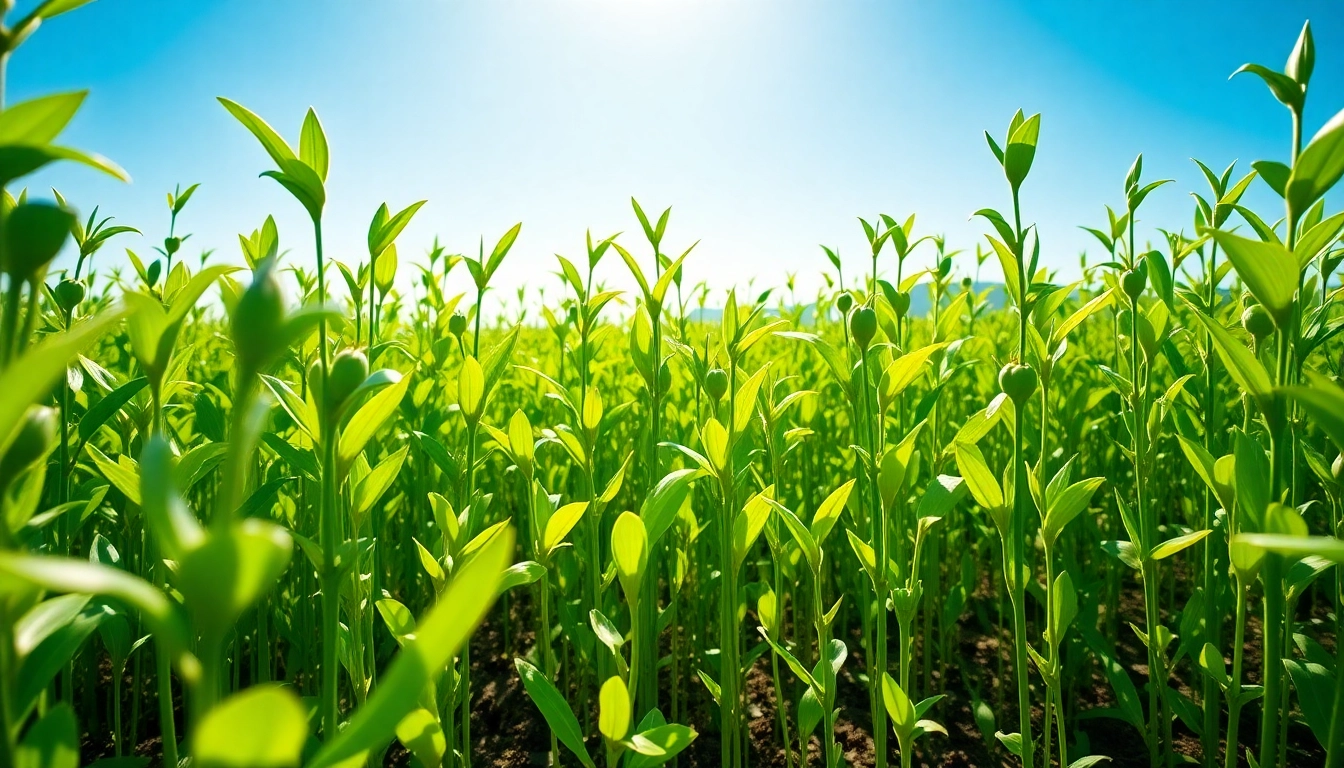Introduction to Medjool Dates
Medjool dates, often hailed as the “king of dates,” are a deliciously sweet variety of dates that have been cultivated for centuries. Known for their large size, chewy texture, and caramel-like flavor, these dates are not just tasty but also packed with essential nutrients. They hold significant importance in the commercial date market, constituting approximately 25% of the worldwide trade in dates. Whether you’re looking to enhance your diet or explore new culinary delights, Medjool dates are a versatile superfood that deserves a place in your pantry.
What are Medjool Dates?
Medjool dates, scientifically recognized as Phoenix dactylifera, are among the most popular and nutritious types of dates available. They are characterized by their rich, sweet flavor and chewy consistency, making them a favored ingredient in various dishes. Grown primarily in the warm climates of North Africa and the Middle East, these dates are harvested from the date palm tree and are considered fresh fruits when they are picked off the tree.
The History and Origin of Medjool Dates
Originating from Morocco, Medjool dates have a rich history that dates back thousands of years. They were cultivated in ancient times by the Arabs and were often referred to as “the fruit of the gods.” The cultivation of Medjool dates has spread throughout the regions of the Middle East, with significant production centered in countries like Israel, Jordan, and the United States, specifically in California, where climate conditions are optimal for date farming.
How Medjool Dates Differ from Other Dates
Medjool dates differ significantly from other varieties, such as Deglet Noor and Barhi, predominantly in their size, texture, and taste. Medjool dates are larger, softer, and have a rich, caramel-like flavor, while other types may have a firmer texture and less sweetness. Medjool dates are often sought after for snacking and culinary applications due to their unique qualities, making them a staple in many households.
Nutritional Profile of Medjool Dates
Understanding the nutritional profile of Medjool dates is essential for recognizing their value as a health food. These dates are not only delicious but also a powerhouse of nutrients.
Vitamins and Minerals Found in Medjool Dates
Medjool dates are an excellent source of various vitamins and minerals. They contain significant amounts of potassium, magnesium, copper, manganese, and vitamin B6. Each vitamin and mineral plays a vital role in overall health, from supporting heart health to aiding in metabolic functions.
Caloric Composition of Medjool Dates
While Medjool dates are nutritious, they are also relatively high in calories. Approximately 20-24 calories per date makes them an energy-dense snack. Understanding portion control is key when incorporating them into your diet, particularly if you’re managing caloric intake.
Digestive Health and Medjool Dates
Rich in dietary fiber, Medjool dates can significantly aid digestive health. The fibers help in regulating bowel movements, potentially reducing the risk of constipation, and fostering overall gut health. Regular consumption can contribute to improved digestive function.
Health Benefits of Medjool Dates
The health benefits of Medjool dates extend beyond their nutritional content. Here are some compelling reasons to include them in your diet.
Boosting Energy Naturally with Medjool Dates
Due to their high natural sugar content, Medjool dates are an excellent source of quick energy. They contain fructose, glucose, and sucrose, making them a great alternative to processed sugars and energy bars. Athletes often use them as a natural energy booster during training and competitions.
How Medjool Dates Can Support Heart Health
The heart-health benefits of Medjool dates can be attributed to their potassium content, which helps regulate blood pressure and heart function. Additionally, the presence of antioxidants in Medjool dates may assist in reducing inflammation, improving arterial health, and lowering the risk of cardiovascular diseases.
Medjool Dates as a Natural Laxative
Many people turn to Medjool dates to alleviate constipation. Their fiber content acts as a natural laxative, helping to maintain regular bowel movements. Incorporating Medjool dates into your daily routine can promote digestive health and prevent constipation.
Culinary Uses of Medjool Dates
Medjool dates are incredibly versatile in the kitchen, making them a fantastic ingredient for various culinary creations. Here are some popular uses.
Using Medjool Dates in Desserts
Medjool dates can be utilized in a wide variety of desserts, from energy balls to smoothies. Their natural sweetness makes them an ideal substitute for refined sugars in recipes. Popular desserts include date caramel mixes, chocolate-covered dates, and raw desserts such as cheesecake and brownies.
Incorporating Medjool Dates into Savory Dishes
Beyond desserts, Medjool dates can add a unique flavor profile to savory dishes. They can be diced and added to salads, stuffed with cheese or nuts as appetizers, or incorporated into tagines and stews for added sweetness and texture. Their balance of sweetness complements salty and spicy flavors beautifully.
Creative Snack Ideas with Medjool Dates
Snacking on Medjool dates is not only delicious but also nutritionally beneficial. They can be paired with nuts for an energy-boosting treat, blended into smoothies as a natural sweetener, or enjoyed with dark chocolate for a luxurious dessert. Creating stuffed dates with almond or cream cheese is another wonderful way to enjoy their rich flavor.
Buying and Storing Medjool Dates
When it comes to buying and storing Medjool dates, there are several factors to consider to ensure you get the best quality.
Where to Purchase Quality Medjool Dates
High-quality Medjool dates can often be found in health food stores, farmers’ markets, and online retailers. It’s essential to look for dates that are plump and firm with a natural sheen. Avoid dates that appear dry or shriveled, as they may not have the same quality or flavor.
Best Practices for Storing Medjool Dates
Proper storage is crucial for maintaining the freshness of Medjool dates. Store them in an airtight container in a cool, dry place, ideally in the refrigerator, where they can last for several months. If you’d like to keep them longer, they can be frozen for a year without a loss in taste or nutritional quality.
How to Tell When Medjool Dates Are Fresh
Fresh Medjool dates should be moist and sticky to the touch, with a dark brown color and a slight sheen. If they become excessively dry or hard, they may not be as enjoyable to eat. Always check for signs of mold or off-smells, which can indicate spoilage.



